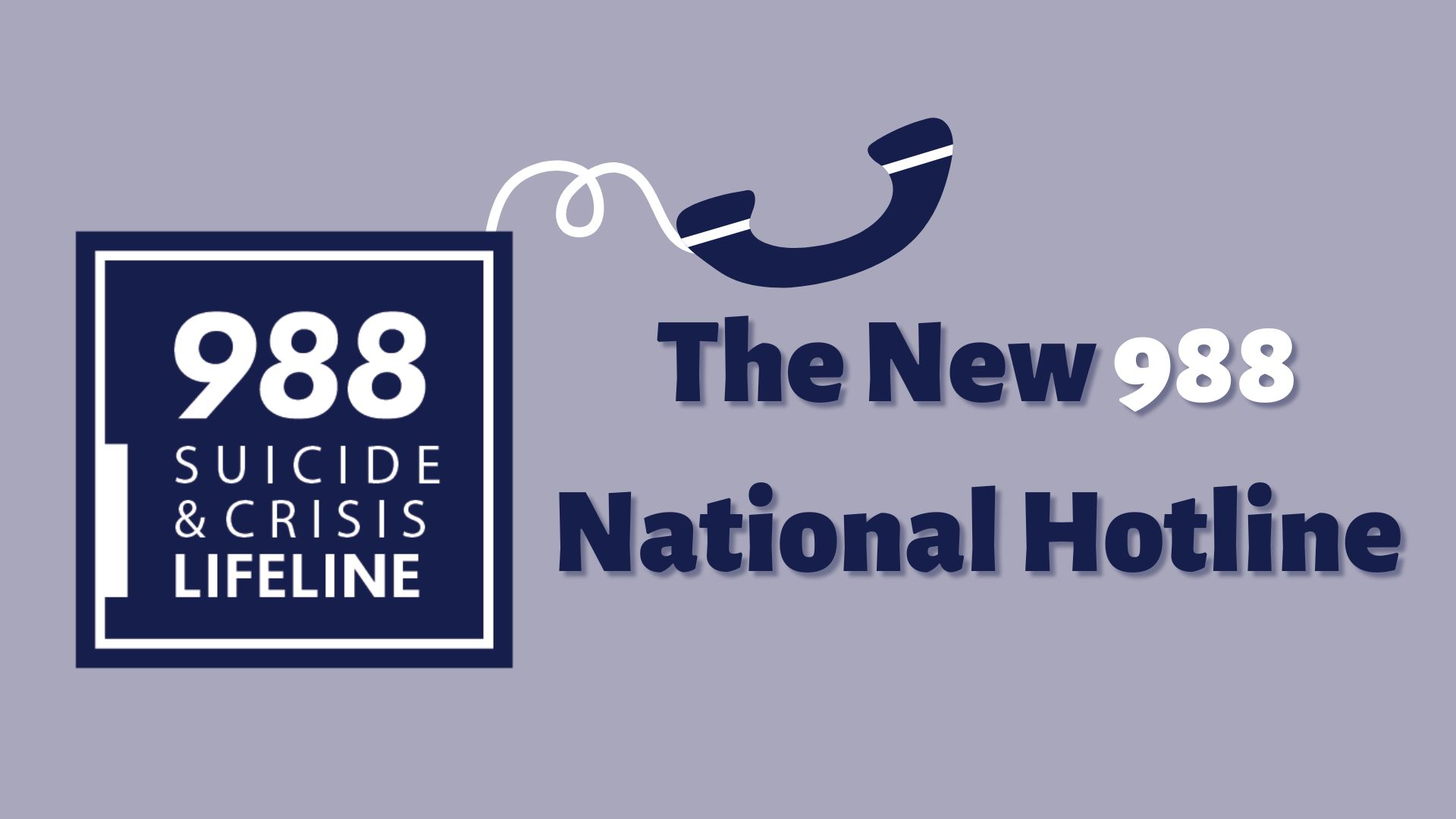At the direction of Congress, the Federal Communications Commission designated a new national 988 lifeline for mental and behavioral health emergencies – thoughts of suicide, erratic behavior, substance abuse issues, or if you are worried about someone who may need crisis support.
Since July 16th anyone in the country can call or text 988 to get free, confidential, and immediate help for a mental health emergency. Everyone already knows to call 911 if your house is on fire; you don’t need to Google the telephone number for the fire department in the middle of the night! Being able to dial a three-digit number when you are experiencing a mental health emergency should become as natural as dialing 911.
Hopefully, this is the first step in the transformation of mental health services. It will take some time to build the support systems behind the call system. The Biden administration has invested more than $400 million in beefing up crisis centers and other mental health services to support the 988 system.
For every person who dies by suicide, 316 people seriously consider it. That is more than 13 million people who seriously consider taking their own lives, yet only about two million call the existing ten-digit National Suicide Hotline.
Currently, when people experiencing a mental health crisis call 911, many end up in a hospital or in jail. More than 2 million people suffering with a mental illness are booked into our nation’s jails and prisons each year. In most instances of mental health crisis, a trained mental health provider and/or emergency mental health care is needed. Previously, the only resource to call was 911. We learned that for many mental health and drug abuse emergency calls a response from police, fire, or EMS is not the safest outcome. In some circumstances, the mere arrival of police on the scene can escalate non-violent situations and create additional problems for those going through trauma and crisis. In some cases, police presence may have tragic consequences for individuals in a mental health crisis.
When someone calls 988, a certified counselor at a call center, ideally located near that person, will guide them through the crisis. If further help is requested, the counselor may send a mobile crisis team made up of mental-health experts and peer-support counselors. If those interventions aren’t sufficient, 988 can also direct people to stabilization facilities—mental-health facilities where trained staff can observe and provide additional counseling and support—or residential facilities for longer term care.
According to the Maryland Department of Health Behavioral Health Administration’s outreach materials, there are several benefits for the new 988 service:
- 988 call specialists located at eight crisis call centers around Maryland can immediately provide phone-based support and connections to local resources.
- By directing cases to 988 when a behavioral health crisis (mental health and substance use) isn’t life threatening, the response provided by public services, such as law enforcement and EMS, can be reserved for situations in which lives are endangered.
- Maryland has a strategic plan for suicide intervention and post-suicide postvention — an attempt to reduce risk and promote community healing after a suicide death.
- The call center can accommodate translation services for over 150 languages with Language Line Solutions. However, only English and Spanish are available by text and chat services currently.
Simply having the number active will save thousands of lives—every year in the U.S. where more people die by suicide than in car accidents. Please share 988 with anyone who might need it.

